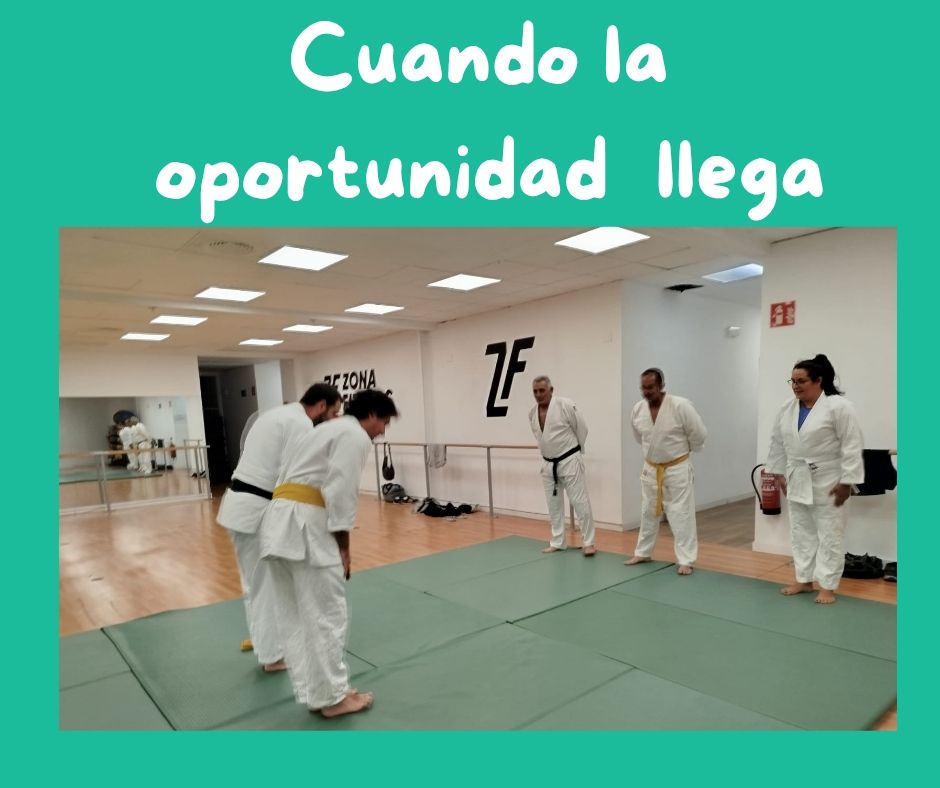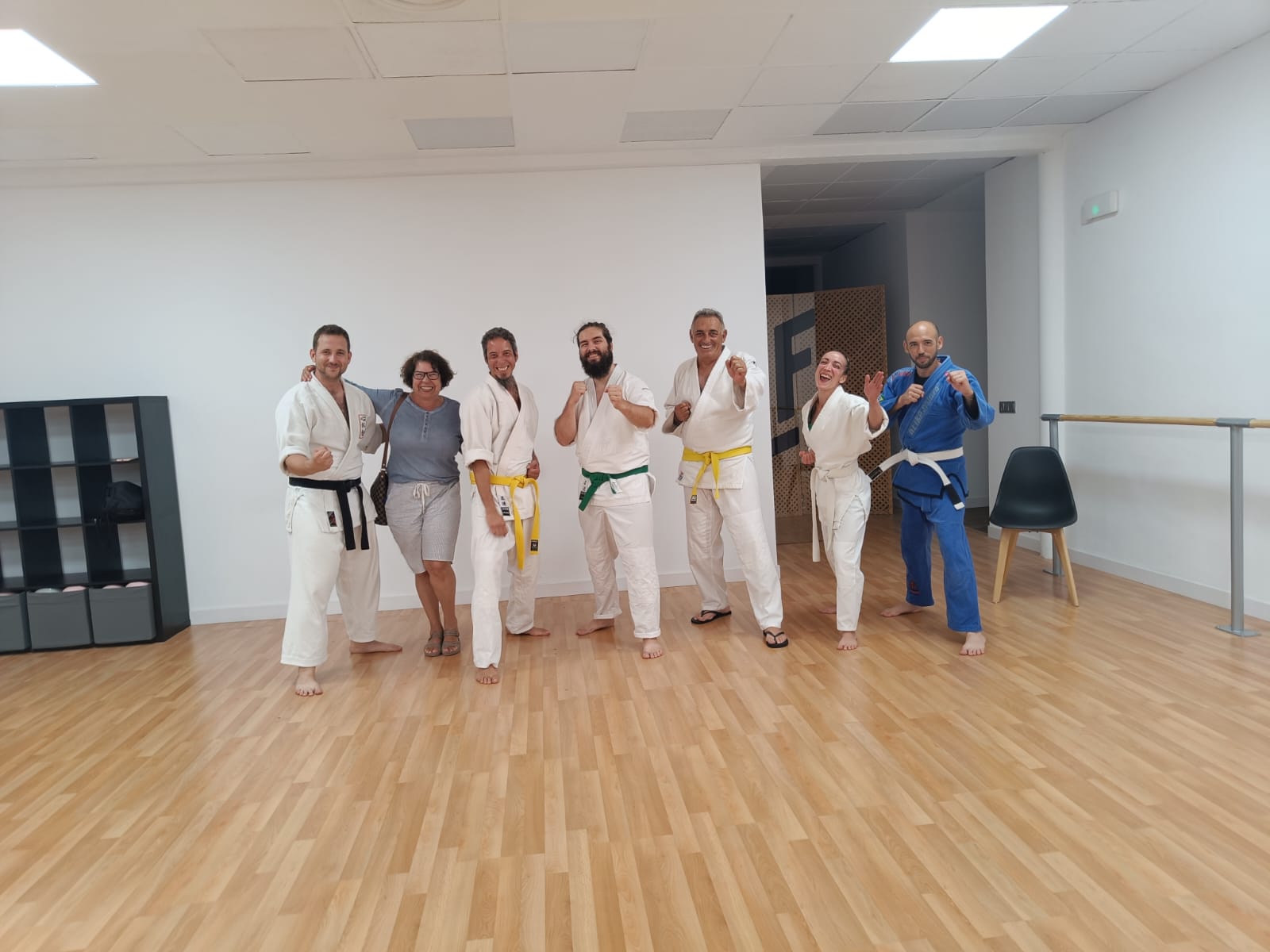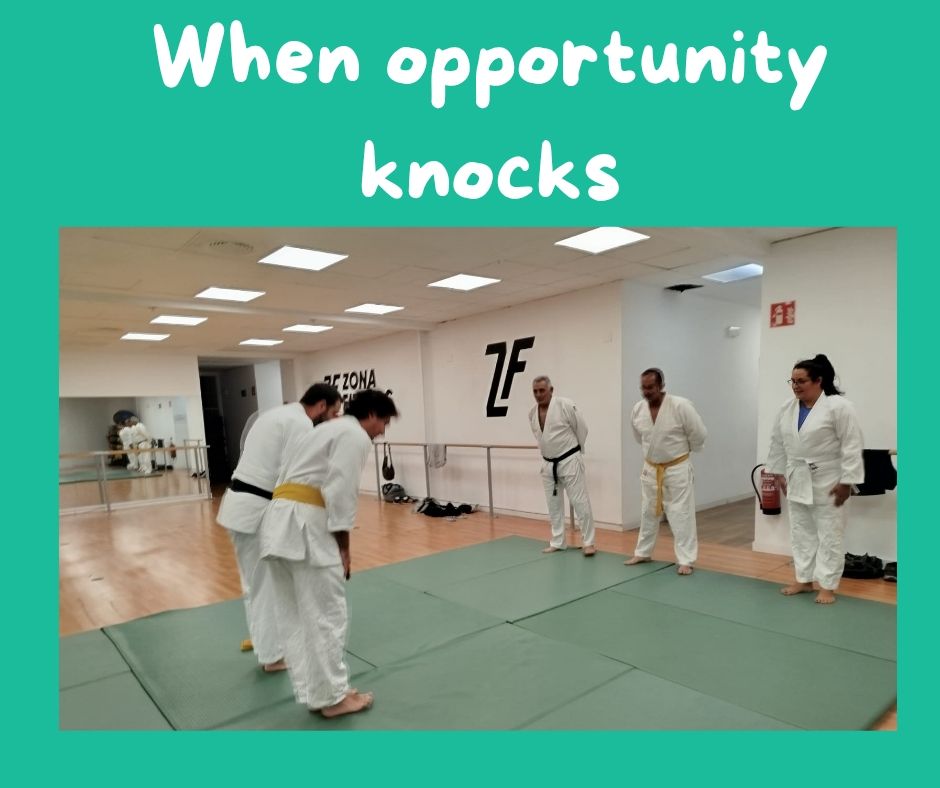
Saludos amigos de @beentrepreneur.
El buen emprendedor es un cazador de oportunidades, aquel que observando su entorno detecta necesidades y logra sintetizar una solución factible.
Sin embargo, también es posible que la oportunidad llegue sin estarla buscando y por inesperada te entren dudas si aceptarla o no, si eres la personas más indicada para dar respuesta positiva y llevarla adelante, si posees el conocimiento y las habilidades suficientes que satisfagan, no solo las expectativas de los demás, de quién te ha contactado y las propias. Les doy el ejemplo que ilustra lo que planteo.
La semana pasada una persona muy allegada luego del periodo vacacional se incorporó a sus clases de taijitsu, El taijitsu es una disciplina de las artes marciales de base japonés pero desarrollada en el mundo occidental. Su punto focal es la defensa y no el ataque.
Su maestro, tiene una larga trayectoria en las artes marciales, es cinturón negro en dos disciplina más. Su escuela es más un espacio de “amor al arte” que un emprendimiento, compartiendo su trabajo formal con su afición.
El asunto es que quiere darle un vuelco a la escuela, hacer de ella su emprendimiento y consolidarla a mediano plazo. Entre las dificultades que confronta para alcanzar esta meta es que la escuela la ubicó en un pueblo distanciado a la ciudad donde reside y aceptó un nuevo trabajo que implica viajar por todo el país, estas situaciones han hecho que la escuela pierda parte de sus alumnos y que vaya en franco declive.
Como alternativa para no cerrar, le ha planteado a su alumno asociarse, una oportunidad para alguien que ha emprendido en otras momentos y que por diversos motivos, más de tipo económico que otros, no se ha consolidado como emprendedor, el alumno es la parte de la asociación que más conozco por lo que me atrevo a mirar desde fuera y lo he invitado a que conversemos acerca de sus fortalezas y debilidades personales para llevar adelante este nuevo proyecto.

### Entre sus fortalezas se encuentran:
*Tiene amplio conocimiento y experiencia en artes marciales, especificamente en taekwondo y ha alcanzado cinturón verde en el taijitsu.
*Siente pasión por estas disciplinas que van más allá de un hobby, hay compromiso.
*Tiene un trabajo estable por lo que el plan de mediano plazo le va bien.
*El horario de la escuela no interfiere con el laboral.
*Vive cerca de la escuela.
*Tiene dominio en el manejo de redes sociales.
*Es creativo a la hora de diseñar estrategias para atraer y mantener clientes.
### Debilidades
*Temor a no tener la experiencia suficiente para instruir a otros.
*La logística familiar, en cuanto a horarios de las actividades extraescolares de sus hijos.
*Poca flexibilidad del horario de la escuela
Como podemos observar son más las fortalezas que las debilidades y entre estás las más “benigna”, es el temor a no tener la experiencia para instruir a otros, cuestión que considero es completamente momentánea, pues una vez que se tiene el conocimiento, la disposición y la apertura, la confianza en sí mismo y de sus múltiples capacidades se va fortaleciendo.
Los otros dos aspectos, parece mentira, pero son lo que más atención hay que prestarles sobre todo porque no depende solamente de él, en ambos casos sugiero negociar, reestructurar los acuerdos y “discutir” posibles alternativas.
En todo caso, la puerta de la oportunidad se ha abierto y el alumno no está dispuesto a cerrarla, bien por él y deseándole el mayor de los éxitos.


Greetings, friends of @beentrepreneur.
A good entrepreneur is an opportunity hunter, someone who observes their surroundings, identifies needs, and manages to come up with a feasible solution.
However, it is also possible that the opportunity will arise without you looking for it, and because it is unexpected, you may have doubts about whether to accept it or not, whether you are the right person to respond positively and carry it forward, whether you have the knowledge and skills to satisfy not only the expectations of others, of those who have contacted you, but also your own. Let me give you an example that illustrates what I am saying.
Last week, a close friend of mine returned to his taijitsu classes after the holiday period. Taijitsu is a Japanese martial art that has been developed in the Western world. Its focus is on defense rather than attack.
His teacher has a long history in martial arts and is a black belt in two other disciplines. His school is more a space for “love of the art” than a business, sharing his formal work with his hobby.
The thing is, he wants to turn the school around, make it his business venture, and consolidate it in the medium term. Among the difficulties he faces in achieving this goal is that the school is located in a town far from the city where he lives, and he has accepted a new job that involves traveling throughout the country. These situations have caused the school to lose some of its students and go into sharp decline.
As an alternative to closing, she has proposed a partnership to her student, an opportunity for someone who has been an entrepreneur at other times and who, for various reasons, mostly financial, has not established himself as an entrepreneur. The student is the part of the partnership that I know best, so I dare to look at it from the outside and have invited him to talk about his personal strengths and weaknesses in order to move forward with this new project.

### Among his strengths are:
*He has extensive knowledge and experience in martial arts, specifically taekwondo, and has achieved a green belt in taijitsu.
*He is passionate about these disciplines, which go beyond a hobby; there is commitment.
*He has a stable job, so the medium-term plan suits him well.
*The school schedule does not interfere with his work.
*He lives near the school.
*He is proficient in social media.
*He is creative when it comes to designing strategies to attract and retain
### Weaknesses
*Fear of not having enough experience to teach others.
*Family logistics, in terms of their children's extracurricular activity schedules.
*Little flexibility in the school schedule.
As we can see, there are more strengths than weaknesses, and among these, the most “benign” is the fear of not having the experience to teach others, which I consider to be completely temporary, because once you have the knowledge, willingness, and openness, your self-confidence and your multiple abilities will grow stronger.
The other two aspects, strange as it may seem, are the ones that need the most attention, especially because they do not depend solely on him. In both cases, I suggest negotiating, restructuring agreements, and “discussing” possible alternatives.
In any case, the door of opportunity has opened, and the student is not willing to close it. Good for him, and I wish him the best of success.

Translated with DeepL.com (free version) Fuente de imágenes: Archivo personal



MIS REDES SOCIALES







